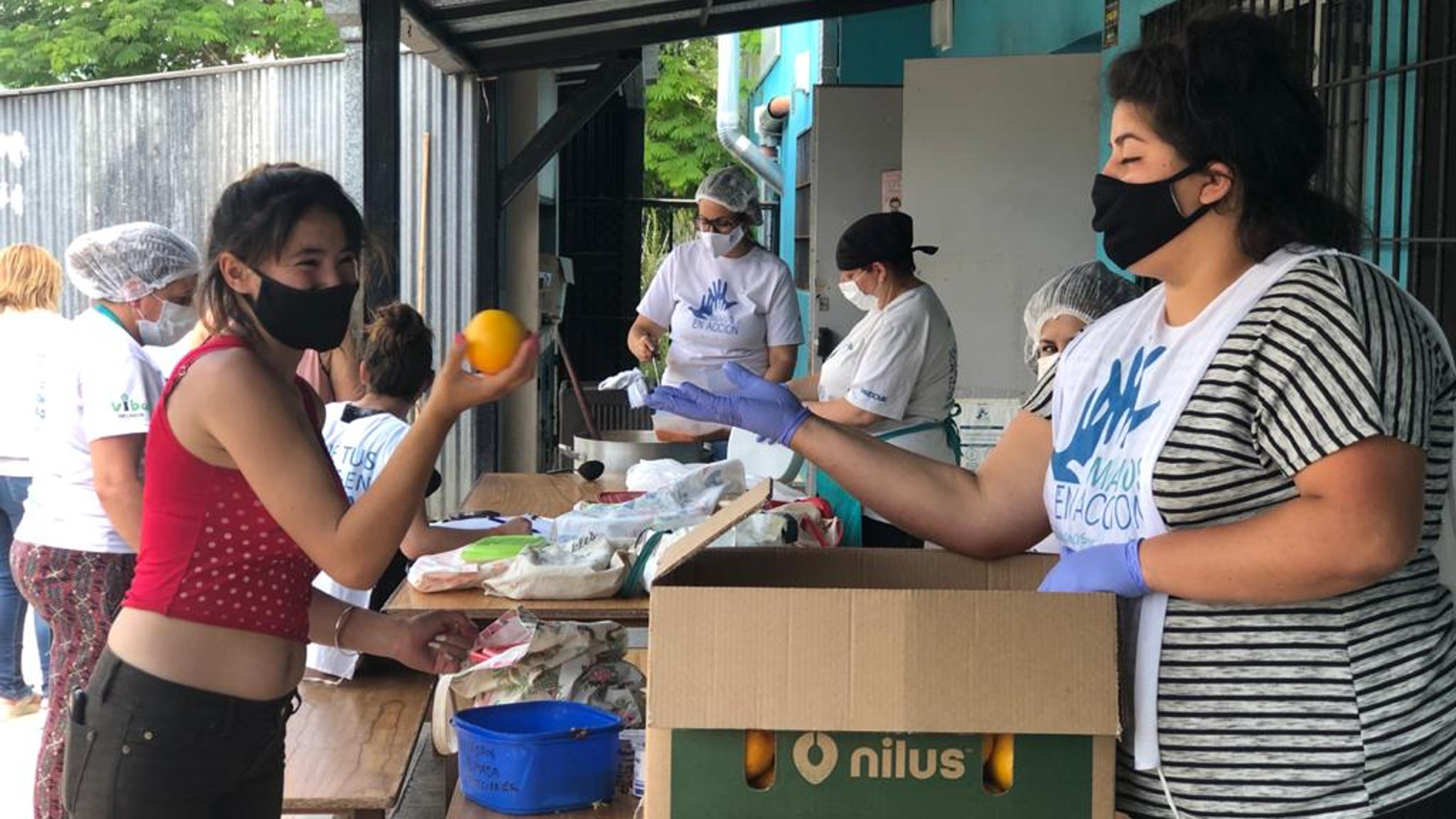Harnessing digital technology to promote transparency and efficiency in the distribution of cash-based transfers
 © Rosario Traverso
© Rosario TraversoWhat is the challenge?
According to the report "The State of Food Security and Nutrition in the World", there are over 820 million people who suffer from severe food insecurity and have likely run out of food and gone for days without eating. There are another 1.3 billion people who do not have regular access to nutritious and sufficient food. Malnutrition is directly associated with chronic diseases, intellectual and emotional underperformance and stunting. In the global estimate for 2021, 23% of children under age 5 were stunted and 45% of their deaths are linked to undernutrition.
According to the UN Refugee Agency (UNHCR) in 2022 there were 6.8 million internally displaced people in Colombia, of which 100,500 were refugees and 127,300 were asylum seekers. In 2022 WFP assisted 834,000 people in Colombia with 58 million in cash-based transfers (CBT).
What is innovative about the project?
Nilus is an award-winning company with a successful track record of using its technology and supply chain network to support marginalized communities to access food in Argentina, Mexico, and Peru. Through this project Nilus and WFP will partner to adapt Nilus’ solution to a humanitarian context, by applying the technology to Cash-Based Transfers that will reach refugee communities who are in most need of cash and food assistance.
Nilus's technology facilitates the consolidation of grocery orders from many families in the same community into one wholesale order, organizes the procurement of the goods, the preparation of the orders, and their delivery in one pick-up point per community. Each stage of the process is translated into savings for the end-customers: the consolidation of the orders guarantees access to volume discounts; the procurement of food at risk of being wasted guarantees access to healthy products inexpensively; and the delivery in pick-up points instead of door-to-door lowers the last-mile logistics cost and the operation's environmental footprint.
In this project, Nilus and WFP will test a partnership model where Nilus's technology will manage WFP's CBTs program in Colombia, in order to provide to enhance its transparency and traceability, and optimize the value of CBTs, by leveraging Nilus's technology and Community Group Buying model to consolidate orders and access volume discounts. This is a unique partnership that leverages WFP's CBT program and Nilus's award-winning technology to optimise the value of the CBT funding and support more people in need, by facilitating disintermediated access to products at risk of being wasted.
What are the expected outcomes?
It is expected that the solution will have noticeable impact in terms of traceability, funding optimization and increased access to healthy food for food insecure people.
The project expect to manage the distribution of CBTs among 150,000 people in Colombia, who use the system at least three times a month and effectively lowers the cost of the products bought by CBT beneficiaries by 20%.
Who are the project partners?
This project is a partnership between UN World Food Programme's Innovation Accelerator, Nilus and the Tarsadia Foundation.